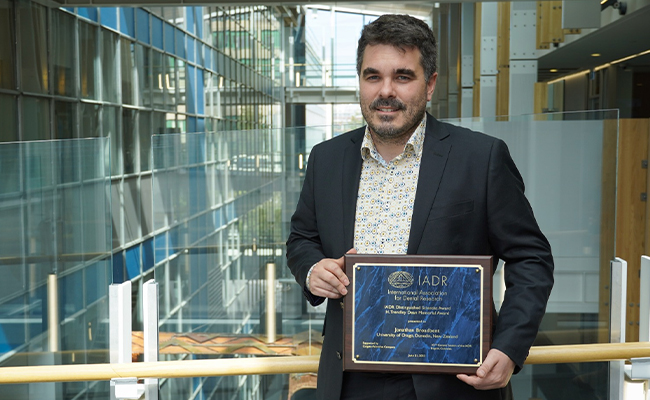
Professor Jonathan Broadbent's dedication to dental public health research resulted in his Distinguished Scientist award.
The support of his family and colleagues are integral to his personal success, says an Otago Dentistry Professor who has been recognised for his research in the public health field.
Dental Public Health Professor Jonathan Broadbent was surprised to recently have been awarded the Distinguished Scientist Award from the International Association for Dental Research (IADR).
“Two colleagues contacted me wanting to nominate me for the award, which I agreed to, but it was still hugely surprising to have actually received it,” he says.
IADR presented the award for his “meritorious research in epidemiology and public health”, which he says would not have been possible without the encouragement he received from those around him.
He credits his family, particularly wife Isabella, for their support as the couple raises four sons together.
“Parenting is a difficult task when you're outnumbered two-to-one,” he says, “but it's also all the more rewarding.”
He also acknowledges how well his co-workers have treated him, making specific mention of Emeritus Professor Murray Thomson and Professor Richie Poulton who he says encouraged him throughout his research career.
Professor Broadbent went into the field of dentistry because he desired a hands-on career.
It naturally evolved into an academic career after he started work on a research project during his undergraduate dental training.
Since then, his academic career has grown to include several projects, the most well-known being the 'Dunedin Study' where he leads the dental component of the study.
The Dunedin Study is a longitudinal, multidisciplinary health and development study, based at Otago University, which investigates the life course of a large cohort of people who are now aged in their 50s.
Professor Broadbent has made important contributions to understanding oral health conditions, their risk factors, and their implications for health in this significant study.
- Kōrero by the Division of Health Sciences Communications Adviser, Kelsey Schutte.